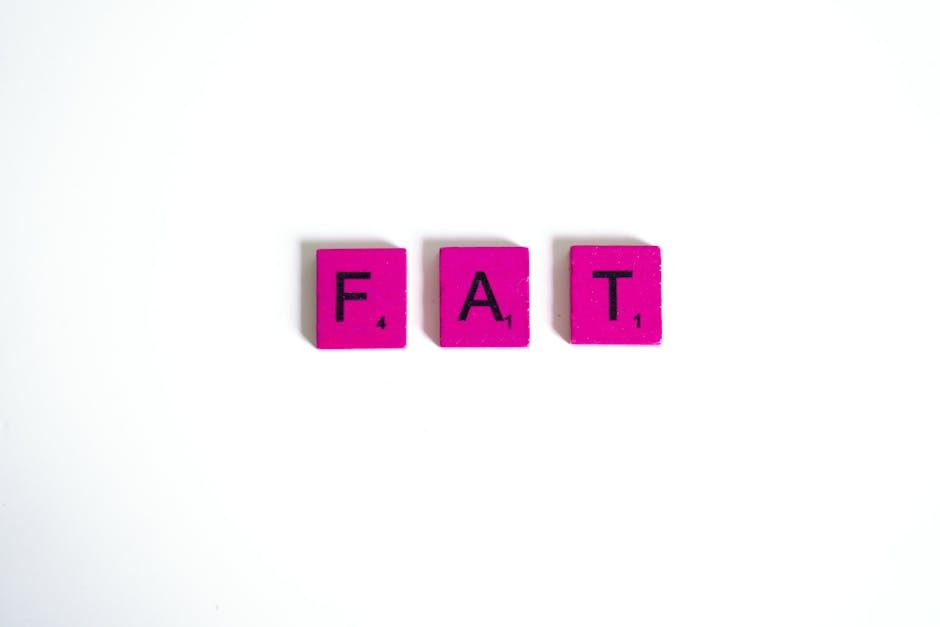In the quest for effective weight management solutions, many individuals find themselves navigating a complex landscape of dietary aids and supplements. Among these, Orlistat—commonly known by its over-the-counter brand, Alli—has emerged as a noteworthy contender. Approved by the FDA, this fat-blocking agent claims to offer a helping hand in the pursuit of a healthier lifestyle. But does it live up to its promises? This article delves into the effectiveness of Alli, exploring its mechanism of action, potential benefits, and limitations, all while guiding you through the nuances of this popular fat blocker. Whether you’re considering it as part of your weight loss journey or simply seeking to understand its role in the ever-evolving world of health and wellness, join us as we uncover the truths behind this FDA-approved solution.
Understanding Orlistat Alli and Its Mechanism of Action
Orlistat, commonly known by the brand name Alli, operates as a lipase inhibitor, effectively blocking the absorption of dietary fats in the gastrointestinal tract. By preventing the breakdown of approximately 30% of the fat consumed, it reduces caloric intake and assists in weight management. This mechanism allows users to potentially see gradual weight loss while maintaining a lower-calorie diet. The undigested fats are ultimately excreted from the body, which is why individuals may notice specific changes in their bowel movements after taking the medication.
As with any weight-loss solution,the effectiveness of Orlistat can vary among individuals,influenced by various factors such as diet,lifestyle,and overall health. To maximize the benefits of Alli, users are encouraged to follow a balanced diet, focusing on:
- Low-fat meals to minimize gastrointestinal side effects.
- Regular physical activity to enhance weight loss efforts.
- Portion control to ensure caloric deficits.
Research has shown that individuals utilizing Orlistat alongside lifestyle changes can achieve more meaningful weight loss results compared to those who focus solely on diet and exercise. Despite its effectiveness, it is indeed critically important to consult with a healthcare provider to understand if it’s a suitable option based on individual health needs.

Assessing the Clinical Evidence Behind Fat Blocking Efficacy
When it comes to understanding the effectiveness of fat blocking agents like Orlistat, it’s essential to delve into a variety of clinical studies and research findings. Numerous trials have pointed to Orlistat’s ability to impede the absorption of dietary fat in the intestines by about 25%. This mechanism not only results in reduced calorie intake from fats but also enhances weight loss outcomes. For individuals aiming to shed pounds, it’s significant to consider the results of major studies, including those that document the following outcomes:
- Increased weight loss compared to diet alone
- Potential improvements in obesity-related health markers
- Enhanced reduction in body mass index (BMI)
Moreover, analyzing the long-term sustainability of these effects is crucial. As an example, a meta-analysis revealed that, over a span of 1-2 years, patients using Orlistat lost an average of 5-10% of their body weight. additionally, a comparative review highlighted key variations in weight loss success rates across different demographics. The following table summarizes some of these findings:
| Demographic | Weight Loss (% of Body Weight) | Health Improvements |
|---|---|---|
| Adults (18-65) | 5-10% | Improved lipid profiles |
| Older Adults (65+) | 3-7% | Reduced blood pressure |
| Obese Individuals | 10-15% | Enhanced glucose control |
Practical Guidelines for Safe Use and Lifestyle integration
Using Orlistat Alli effectively requires an informed approach. It’s essential to adhere to the recommended dosage and other guidelines to maximize its benefits while minimizing potential side effects.start by consulting with a healthcare provider before beginning the regimen,especially if you have pre-existing health conditions. Incorporating a balanced diet rich in fruits, vegetables, whole grains, and lean proteins will enhance the efficacy of Orlistat, as its fat-blocking properties are complemented by mindful eating habits. Remember to:
- Monitor your fat intake: Aim for a diet where fat constitutes no more than 30% of your total daily caloric intake.
- Stay hydrated: Drink plenty of water to help with digestion and overall health.
- Flexibility in meals: Plan meals that are lower in fat,allowing a few servings of healthy fats to maintain balance.
In addition to dietary changes, implementing a consistent exercise routine can significantly enhance weight management efforts while using Orlistat. This not only aids in burning calories but also plays a crucial role in maintaining muscle mass during weight loss. Regular physical activity, such as brisk walking, cycling, or swimming, is beneficial. Consider establishing a structured plan to make fitness a regular part of your life. Here are a few suggestions:
- Set achievable goals: Start with small targets, gradually increasing the intensity and duration.
- Incorporate activities you enjoy: This increases adherence and makes exercise feel less like a chore.
- Track progress: Keeping a log can motivate and help you stay accountable.
| Tip | Benefit |
|---|---|
| Consult with a healthcare provider | Ensures safety and personalized advice |
| Focus on lower-fat meals | Enhances Orlistat’s effectiveness |
| Engage in regular physical activity | Boosts weight loss and maintains muscle mass |
Potential side Effects and User Considerations for Optimal Results
While Orlistat (Alli) can be an effective aid in weight management,potential side effects are important to consider for those looking to achieve the best outcomes. users may experience gastrointestinal issues such as oily spotting, flatulence, and frequent bowel movements. These effects occur primarily due to the malabsorption of dietary fats, which is the intended action of the drug. It is indeed crucial for users to maintain a diet that is low in fat to minimize these adverse effects and ensure the medication works effectively. Additionally, some users may experience headaches, stomach pain, or even allergic reactions. Regular monitoring of one’s body response is recommended to tailor dietary choices accordingly.
For optimal results with Orlistat, adherence to certain user considerations can enhance its effectiveness. A balanced diet rich in fruits, vegetables, and whole grains, while low in saturated fats, should be prioritized. Moreover, engaging in regular physical activity can be beneficial. Below is a simple table showcasing dietary considerations:
| Food Group | Recommended Options | Avoid |
|---|---|---|
| Fruits & Vegetables | Apples,Broccoli,Spinach | Potato Chips,Fried Foods |
| Grains | Whole wheat Bread,Brown Rice | White Bread,Pastries |
| Protein | Skinless Chicken,Lentils | Fatty Cuts of Meat,Processed Meats |
Wrapping up
Orlistat,marketed as Alli over the counter,presents a noteworthy option for individuals seeking to manage their weight through a pharmacological approach. With FDA approval backing its safety and efficacy, this fat blocker showcases a unique mechanism of action that could complement conventional weight-loss strategies. Though, it’s essential to recognize that success with Alli is most effectively achieved alongside a balanced diet and regular physical activity. as with any medication, potential side effects and long-term impacts warrant careful consideration and possibly consultation with a healthcare provider. Ultimately, while Orlistat may provide a helpful nudge along the weight-loss journey, the decision to incorporate it should be informed, tailored, and aligned with one’s personal health goals. As you navigate the myriad of options available, remember that every step taken towards a healthier lifestyle is a victory in itself.






